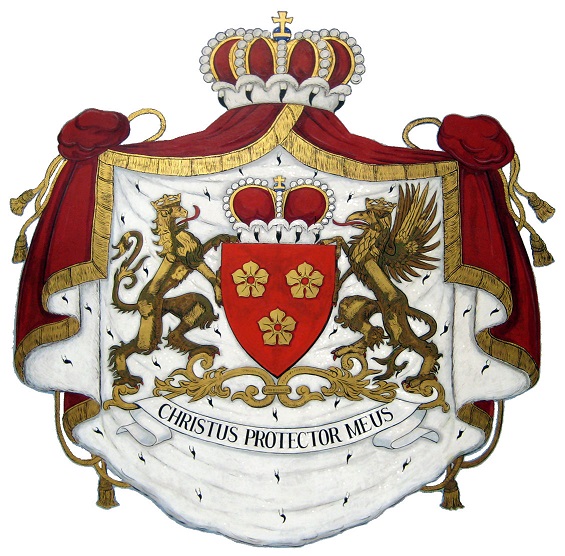
Barriers and Borders in and beyond the Habsburg World: A Transregional Perspective
Faculty of Arts, KU Leuven
(Please register by sending an email to bram.deridder@arts.kuleuven.be)
Synopsis
The geographic span of the Habsburg world makes it an ideal laboratory for transregional history, studying the past along, across and beyond borders and boundaries. Hitherto, the connections between the regions of this dynastic conglomerate have been studied, be it within an institutional or a network-based perspective. As such, historiography managed to cross the boundaries of nation-centred research and to correct the presumed exceptionality of each constituting territory. Transregional history now challenges us to move beyond the national or political borders which have been dominating scholarship since the nineteenth century. The contacts between the regions and peoples of the Habsburg world were shaped by barriers such as distance, language, law and political interest, each often forming a liability to overcome. Similarly, Habsburg aspirations – often pushed by military and economic opportunism – surpassed their particular dominions and manifested themselves across external borders. These separations, both within and beyond the Habsburg world, influenced the possibilities of different actors whenever they interacted, and allowed for code switches according to geographical locations. On the one hand such boundaries might have formed a constraint, but on the other they played a role as gateways through which the empire was strung together. It is therefore the aim of the 2015 workshop ‘Barriers and borders in and beyond the Habsburg world’ to identify the nature of the barriers permeating the Habsburg composite state(s), and deepen our understanding of the conditions in which Early Modern transregional activities took place. By inviting scholars working with the internal and external borders of the Monarquía, we aim to bring a new and comparative view on the enabling and disabling aspects of the barriers crossed by transregional history.
| Thursday 19 November: Venue: Justus Lipsiuszaal, Faculty of Arts (Blijde Inkomststraat 21) | |
| 13u30 – 14u | Opening H.S.H. Duke d’Arenberg |
| 14u – 16u | Session 1: Holy Roman Empire
Luca Scholz (European University Institute): ‘Beyond Borders. Rethinking the Spaces of Negotiated Mobility in the Old Reich’. Raingard Esser (University of Groningen): ‘‘…te erhaldinge van alle goede frunttschap en naaburschap’ – Cross-Border solidarity in turbulent times’. Annemieke Romein (University of Rotterdam): ‘Nobles contesting the legitimacy of policy and rule in Jülich. Dutch Pamphlets and Assemblies in Cologne (1642-1652)’. |
| 16u – 16u30u | Break |
| 16u30 -18u30 | Session 2: Low Countries
Bram De Ridder (University of Leuven): ‘‘Laissez passer librement et franchement le présent porteur’. Passports and passport policy during the Eighty Years War’. Hans Cools (University of Leuven, Fryske Akademy): ‘The transition of Frisia during the Dutch Revolt’. Victor Enthoven (Free University of Amsterdam): ‘The Scheldt as internal and external border during its closure’. |
| 19u: | Conference Dinner ‘De Koerier van Navarra’ |
| Friday 20 November: Venue: Justus Lipsiuszaal, Faculty of Arts (Blijde Inkomststraat 21) | |
| 9u30 | Coffee |
| 10u-12u | Session 3: Low Countries/Burgundy – France
Patricia Subirade (Université Paris 1): ‘La Franche-Comté, une frontière confessionnelle au coeur de la dorsale catholique à l’époque moderne (XVIe-XVIIIe siècles)’. Yves Junot (University of Valenciennes and Hainaut-Cambrésis) / Marie Kervyn (Free University of Brussels): Making a border: the Hispanic Monarchy, its subjects and its neighbours of the Southern Low Countries (16th-17th century) Alexander Soetaert (University of Leuven): ‘Printing at the frontier. Reprinting French books in the Francophone provinces of the Habsburg Netherlands (ca. 1590–1640)’. |
| 12u- 13u30 | Lunch |
| 13u30-15u | Session 4: Iberia
Sophie Verreyken (University of Leuven): ‘Être l’amy veritable et loyal. Transregional elites and strategies of loyalty in the Spanish Habsburg Netherlands’. Fernando Chavarría (University of Cambridge): ‘Right by force, and Right of force: The Spanish borders in the Time of the ‘Politique des Réunions’’. |
| 15u-15u15 | Closure and end of the conference |

